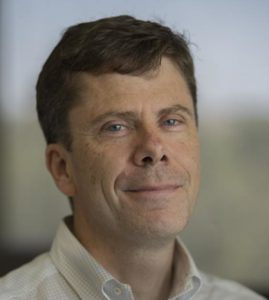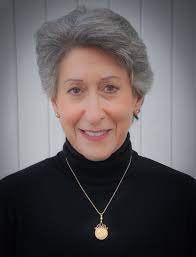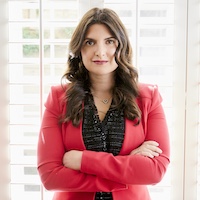
Radiomics and Radio-Genomics: Opportunities for Precision Medicine
Zoom: https://stanford.zoom.us/j/99904033216?pwd=U2tTdUp0YWtneTNUb1E4V2x0OTFMQT09
Pallavi Tiwari, PhD
Assistant Professor of Biomedical Engineering
Associate Member, Case Comprehensive Cancer Center
Director of Brain Image Computing Laboratory
School of Medicine | Case Western Reserve University
Abstract:
In this talk, Dr. Tiwari will focus on her lab’s recent efforts in developing radiomic (extracting computerized sub-visual features from radiologic imaging), radiogenomic (identifying radiologic features associated with molecular phenotypes), and radiopathomic (radiologic features associated with pathologic phenotypes) techniques to capture insights into the underlying tumor biology as observed on non-invasive routine imaging. She will focus on clinical applications of this work for predicting disease outcome, recurrence, progression and response to therapy specifically in the context of brain tumors. She will also discuss current efforts in developing new radiomic features for post-treatment evaluation and predicting response to chemo-radiation treatment. Dr. Tiwari will conclude with a discussion on her lab’s findings in AI + experts, in the context of a clinically challenging problem of post-treatment response assessment on routine MRI scans.

Dear WMIS trainees, colleagues and friends,
We welcome you to join our upcoming virtual WMIS – Stanford Diversity conference on September 9-11, 2020. We are coming together to reinforce our commitment to diversity and to provide a forum for our team members to engage in meaningful discussions. The conference will provide keynote lectures, scientific presentations and educational lectures from leaders and pioneers in the field, who will discuss important topics related to racial justice, women in STEM and Global Health. We are also offering breakout sessions whereby carefully selected individuals will facilitate a discussion about how to implement more supportive and inclusive practices into our daily professional and personal life. The breakout sessions are designed to enable active involvement of smaller groups where people feel safe to discuss current challenges in the STEM field and actionable solutions.
This conference is free of charge and will provide 9.5 CME credits. Abstracts of all conference presentations and a summary of discussion points and insights provided by all conference participants will be published in Molecular Imaging & Biology. The organizing committee will provide 10 trainee prizes in the form of free WMIS memberships to conference attendants for the 2021 WMIC in Miami.
Website: https://www.wmislive.org

Ge Wang, PhD
Clark & Crossan Endowed Chair Professor
Director of the Biomedical Imaging Center
Rensselaer Polytechnic Institute
Troy, New York
Abstract:
AI-based tomography is an important application and a new frontier of machine learning. AI, especially deep learning, has been widely used in computer vision and image analysis, which deal with existing images, improve them, and produce features. Since 2016, deep learning techniques are actively researched for tomography in the context of medicine. Tomographic reconstruction produces images of multi-dimensional structures from externally measured “encoded” data in the form of various transforms (integrals, harmonics, and so on). In this presentation, we provide a general background, highlight representative results, and discuss key issues that need to be addressed in this emerging field.
About:
AI-based X-ray Imaging System (AXIS) lab is led by Dr. Ge Wang, affiliated with the Department of Biomedical Engineering at Rensselaer Polytechnic Institute and the Center for Biotechnology and Interdisciplinary Studies in the Biomedical Imaging Center. AXIS lab focuses on innovation and translation of x-ray computed tomography, optical molecular tomography, multi-scale and multi-modality imaging, and AI/machine learning for image reconstruction and analysis, and has been continuously well funded by federal agencies and leading companies. AXIS group collaborates with Stanford, Harvard, Cornell, MSK, UTSW, Yale, GE, Hologic, and others, to develop theories, methods, software, systems, applications, and workflows.

CME Grand Rounds Sanjiv Sam Gambhir Lectureship – “Imaging at the Speed of Light: Innovations in Positron Emission Tomography”
Simon R. Cherry, PhD
Professor
Biomedical Engineering & Radiology
UC Davis
Join from PC, Mac, Linux, iOS or Android: https://stanford.zoom.us/j/600003703?pwd=RjcwS2MvOG1qVkxyL3U0RmNtUDVWdz09
Meeting ID: 600 003 703
Password: 566048
Or iPhone one-tap (US Toll): +18333021536,,600003703# or +16507249799,,600003703#
Or Telephone:
Dial: +1 650 724 9799 (US, Canada, Caribbean Toll) or +1 833 302 1536 (US, Canada, Caribbean Toll Free)
International numbers available: https://stanford.zoom.us/u/acuqphnvqT
ABSTRACT
Positron emission tomography (PET) allows for sensitive and quantitative measurement of physiology, metabolism and molecular targets noninvasively in the human body. However, typical clinical PET scanners capture less than 1% of the available signal produced in the body. PET scanners also are not currently capable of precisely determining the location at which a particular decay occurs. These limitations present opportunities for further innovation that ultimately will impact molecular imaging research and diagnostic imaging with PET. This presentation focuses on 1) total-body PET imaging which greatly improves signal collection, allowing radiotracer kinetics to be assessed across the entire human body for the first time, and 2) the development of detector technologies that have a timing precision of ~ 30 picoseconds, enabling direct localization of radiotracer decays without tomographic reconstruction.
BIO
Simon R. Cherry, Ph.D. received his B.Sc.(Hons) in Physics with Astronomy from University College London in 1986 and a Ph.D. in Medical Physics from the Institute of Cancer Research, University of London in 1989. After a postdoctoral fellowship at UCLA, he joined the faculty in the Department of Molecular and Medical Pharmacology, also at UCLA, in 1993. In 2001, Dr. Cherry joined UC Davis and established the Center for Molecular and Genomic Imaging, which he directed from 2004-2016. Currently Dr. Cherry is Distinguished Professor in the Departments of Biomedical Engineering and Radiology at UC Davis.
Dr. Cherry’s research interests center around biomedical imaging and in particular the development and application of in vivo molecular imaging systems. His major accomplishments have been in developing systems for positron emission tomography (PET), in particular the invention of the microPET technology that was subsequently widely adopted in academia and industry and as co-leader of the EXPLORER consortium which has developed the world’s first total-body PET scanner. He also has contributed to detector technology innovations for PET, conducted early biomedical studies using Cerenkov luminescence, and developed the first proof-of-concept hybrid PET/MRI (magnetic resonance imaging) systems.
Dr. Cherry is a founding member of the Society of Molecular Imaging and an elected fellow of six professional societies, including the Institute for Electronic and Electrical Engineers (IEEE) and the Biomedical Engineering Society (BMES). He served as Editor-in-Chief of the journal Physics in Medicine and Biology from 2011-2020. Dr. Cherry received the Academy of Molecular Imaging Distinguished Basic Scientist Award (2007), the Society for Molecular Imaging Achievement Award (2011) and the IEEE Marie Sklodowska-Curie Award (2016). In 2016, he was elected as a member of the National Academy of Engineering and in 2017 he was elected to the National Academy of Inventors. Dr. Cherry is the author of more than 240 peer-reviewed journal articles, review articles and book chapters in the field of biomedical imaging. He is also lead author of the widely-used textbook “Physics in Nuclear Medicine”.

CME Grand Rounds Diversity Lectureship – Topic: TBD
Jennifer L. Eberhardt, PhD
Professor
Psychology
Stanford University
Join from PC, Mac, Linux, iOS or Android: https://stanford.zoom.us/j/600003703?pwd=RjcwS2MvOG1qVkxyL3U0RmNtUDVWdz09
Meeting ID: 600 003 703
Password: 566048
Or iPhone one-tap (US Toll): +18333021536,,600003703# or +16507249799,,600003703#
Or Telephone:
Dial: +1 650 724 9799 (US, Canada, Caribbean Toll) or +1 833 302 1536 (US, Canada, Caribbean Toll Free)
International numbers available: https://stanford.zoom.us/u/acuqphnvqT
ABSTRACT
Coming soon!
BIO
Coming soon!

CME Grand Rounds – “Community Based Partnered Research: Revisiting a Critical Concept for Radiology”
Christoph L. Lee, MD, MS, MBA
Professor
Radiology
University of Washington
Join from PC, Mac, Linux, iOS or Android: https://stanford.zoom.us/j/600003703?pwd=RjcwS2MvOG1qVkxyL3U0RmNtUDVWdz09
Meeting ID: 600 003 703
Password: 566048
Or iPhone one-tap (US Toll): +18333021536,,600003703# or +16507249799,,600003703#
Or Telephone:
Dial: +1 650 724 9799 (US, Canada, Caribbean Toll) or +1 833 302 1536 (US, Canada, Caribbean Toll Free)
International numbers available: https://stanford.zoom.us/u/acuqphnvqT
ABSTRACT
Coming soon!
BIO
Coming soon!

CME Grand Rounds – Topic: TBD
Jocelyn D. Chertoff, MD, MS
Professor
Radiology, Obstetrics & Gynecology
Chair, Radiology
Dartmouth Hitchcock Medical Center
Join from PC, Mac, Linux, iOS or Android: https://stanford.zoom.us/j/600003703?pwd=RjcwS2MvOG1qVkxyL3U0RmNtUDVWdz09
Meeting ID: 600 003 703
Password: 566048
Or iPhone one-tap (US Toll): +18333021536,,600003703# or +16507249799,,600003703#
Or Telephone:
Dial: +1 650 724 9799 (US, Canada, Caribbean Toll) or +1 833 302 1536 (US, Canada, Caribbean Toll Free)
International numbers available: https://stanford.zoom.us/u/acuqphnvqT
ABSTRACT
Coming soon!
BIO
Coming soon!

CME Grand Rounds Etta K. Moskowitz Lectureship – Topic: TBD
Elizabeth Krupinski, PhD
Professor & Vice Chair for Research
Radiology & Imaging Sciences
Emory University School of Medicine
Join from PC, Mac, Linux, iOS or Android: https://stanford.zoom.us/j/600003703?pwd=RjcwS2MvOG1qVkxyL3U0RmNtUDVWdz09
Meeting ID: 600 003 703
Password: 566048
Or iPhone one-tap (US Toll): +18333021536,,600003703# or +16507249799,,600003703#
Or Telephone:
Dial: +1 650 724 9799 (US, Canada, Caribbean Toll) or +1 833 302 1536 (US, Canada, Caribbean Toll Free)
International numbers available: https://stanford.zoom.us/u/acuqphnvqT
ABSTRACT
Coming soon!
BIO
Coming soon!

CME Grand Rounds – “Promote Your Academic Career Using Social Media”
Michael Gisondi, MD
Associate Professor & Vice Chair of Education
Emergency Medicine
Stanford University
Join from PC, Mac, Linux, iOS or Android: https://stanford.zoom.us/j/600003703?pwd=RjcwS2MvOG1qVkxyL3U0RmNtUDVWdz09
Meeting ID: 600 003 703
Password: 566048
Or iPhone one-tap (US Toll): +18333021536,,600003703# or +16507249799,,600003703#
Or Telephone:
Dial: +1 650 724 9799 (US, Canada, Caribbean Toll) or +1 833 302 1536 (US, Canada, Caribbean Toll Free)
International numbers available: https://stanford.zoom.us/u/acuqphnvqT
ABSTRACT
Coming soon!
BIO
Coming soon!

Roxana Daneshjou, MD, PhD
Assistant Professor, Biomedical Data Science & Dermatology
Assistant Director, Center of Excellence for Precision Heath & Pharmacogenomics
Director of Informatics, Stanford Skin Innovation and Interventional Research Group
Stanford University
Title: Building Fair and Trustworthy AI for Healthcare
Abstract: AI for healthcare has the potential to revolutionize how we practice medicine. However, to do this in a fair and trustworthy manner requires special attention to how AI models work and their potential biases. In this talk, I will cover the considerations for building AI systems that improve healthcare.